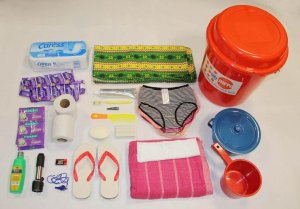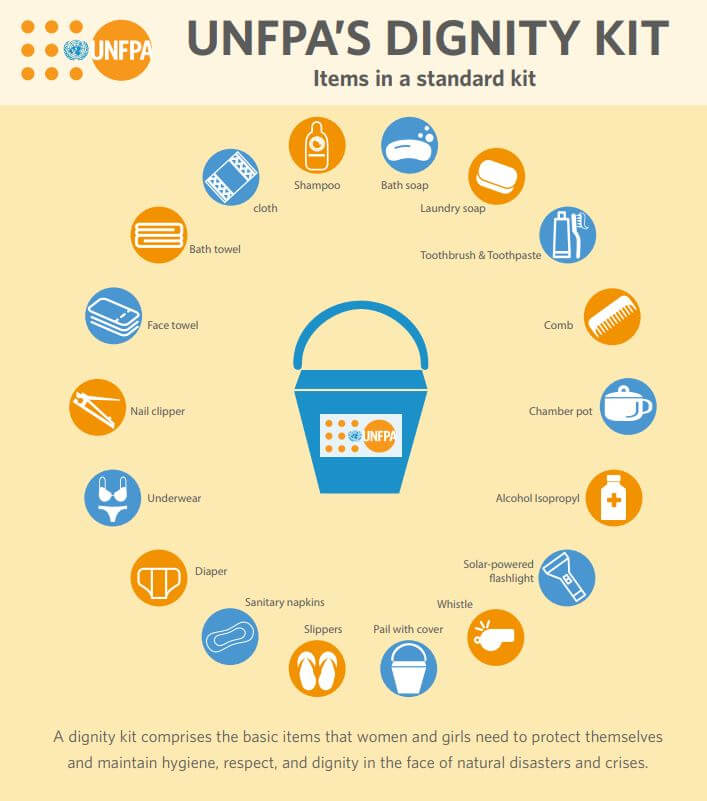In commemoration of the annual United Nations World Menstrual Hygiene Day, over 600 schoolgirls have been empowered on how they can take care of their menstrual health.
The United Nations Population Fund (UNFPA) has four broad approaches to promoting and improving menstrual health around the world:
Supplies and safe bathrooms: In 2017, 484,000 dignity kits, containing pads, soap and underwear, were distributed in 18 countries affected by humanitarian emergencies. UNFPA also helps to improve the safety in displacement camps, distributing flashlights and installing solar lights in bathing areas.

UNFPA’s dignity kits vary across communities. In some setting for example, they may include a headscarf. Generally, they contain menstrual pads, bath soap, multiple pairs of underwear, detergent powder, sanitary napkins, a flashlight, toothpaste, a toothbrush, and a comb, all housed inside a backpack or easy-to-carry bucket. Each of these items is catered to the specific needs of women and girls.
Promoting menstrual health information and skills-building, projects include teaching girls to make reusable menstrual pads or raising awareness about menstrual cups.
Improving education and information: Through its youth programmes and comprehensive sexuality education efforts, UNFPA helps both boys and girls understand that menstruation is healthy and normal.
Supporting national health systems: Efforts include promoting menstrual health and provide treatment to girls and women suffering from menstrual disorders. The agency also procures reproductive health commodities that can be useful for treating menstruation-related disorders.

Gathering data and evidence about menstrual health and its connection to global development: A long overlooked topic of research, UNFPA-supported surveys provide critical insight into girls’ and women’s knowledge about their menstrual cycles, health, and access to sanitation facilities.


